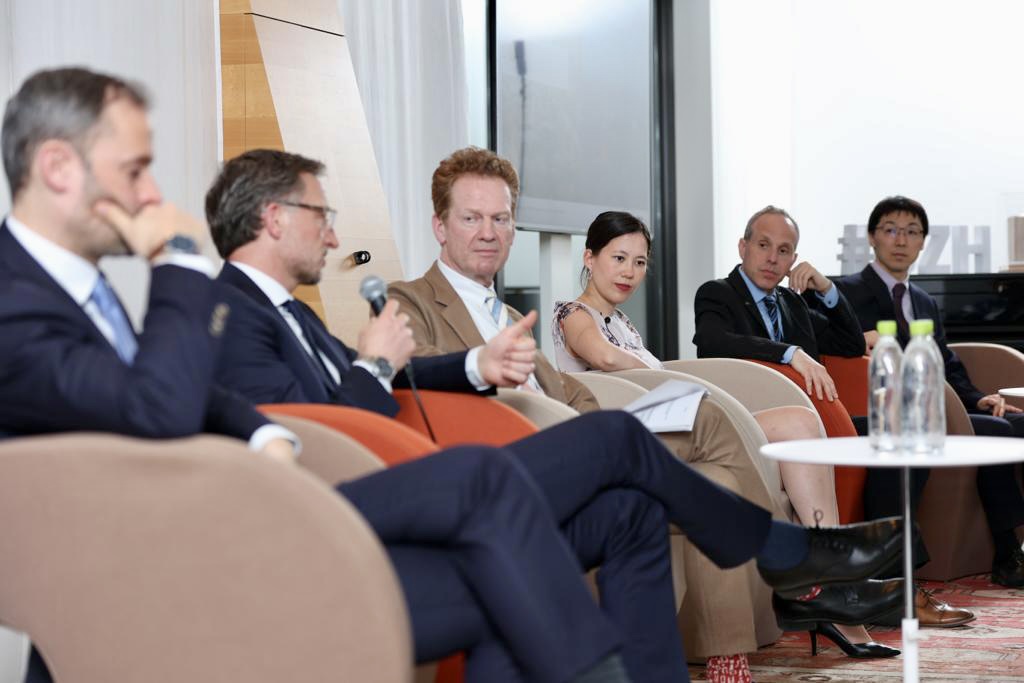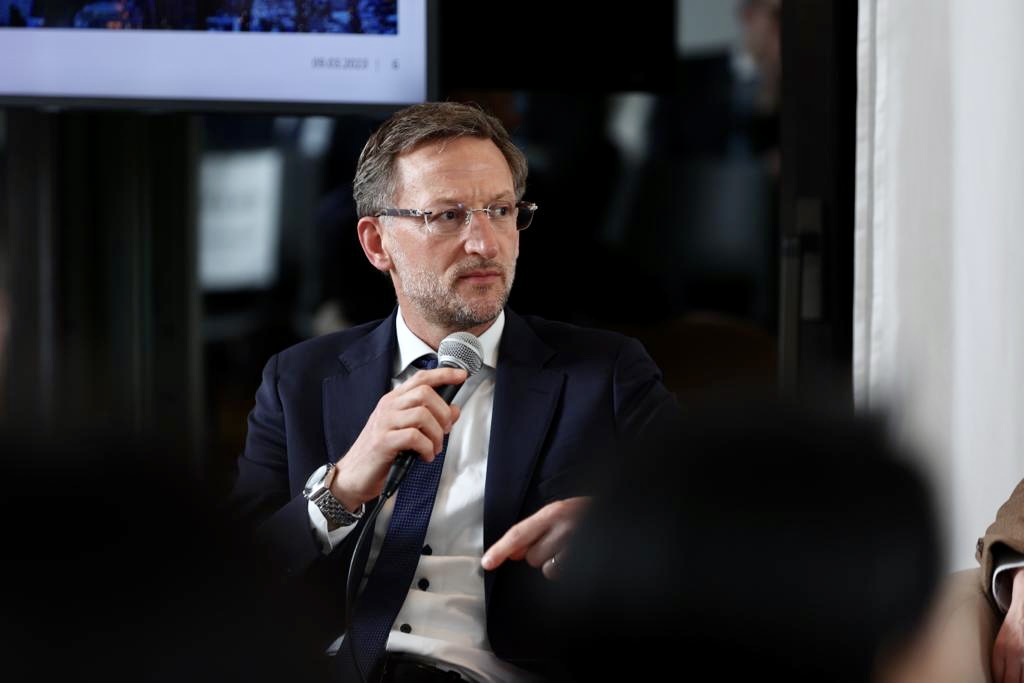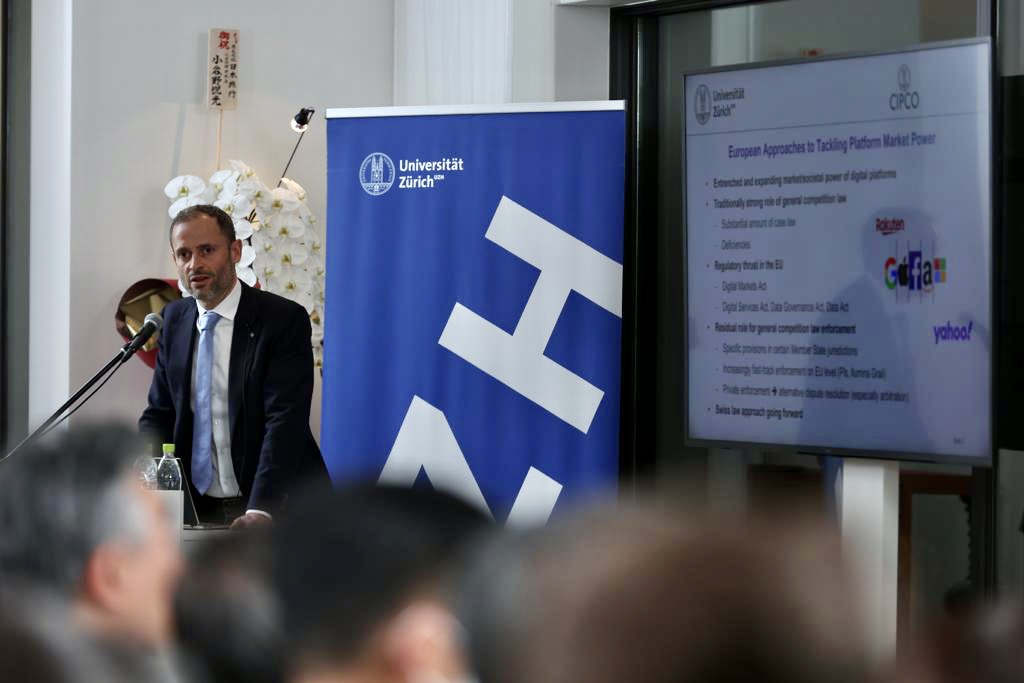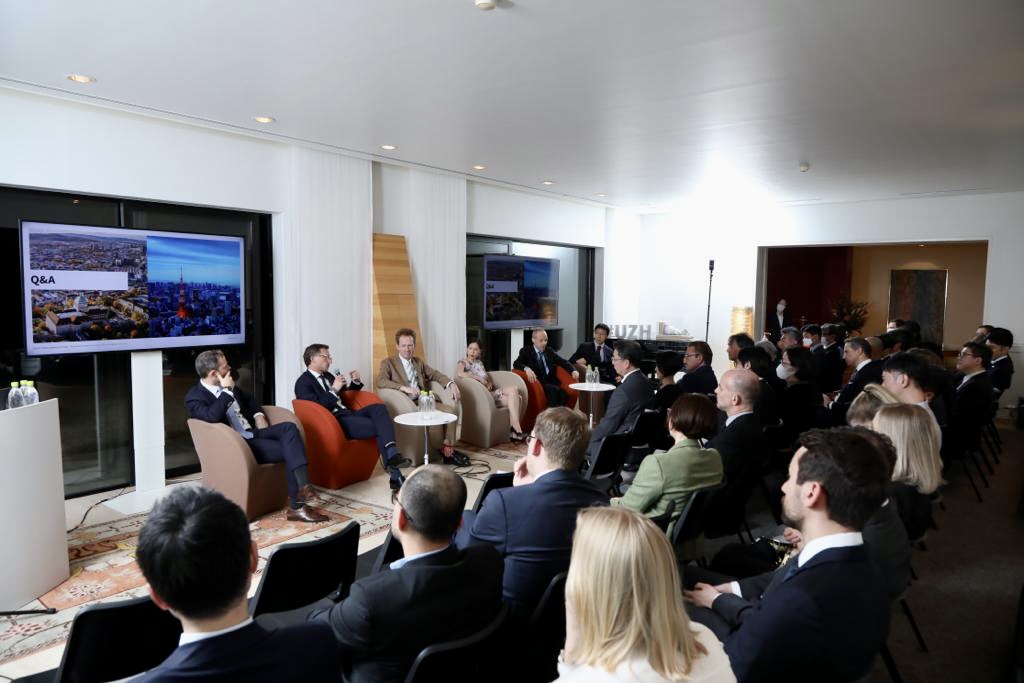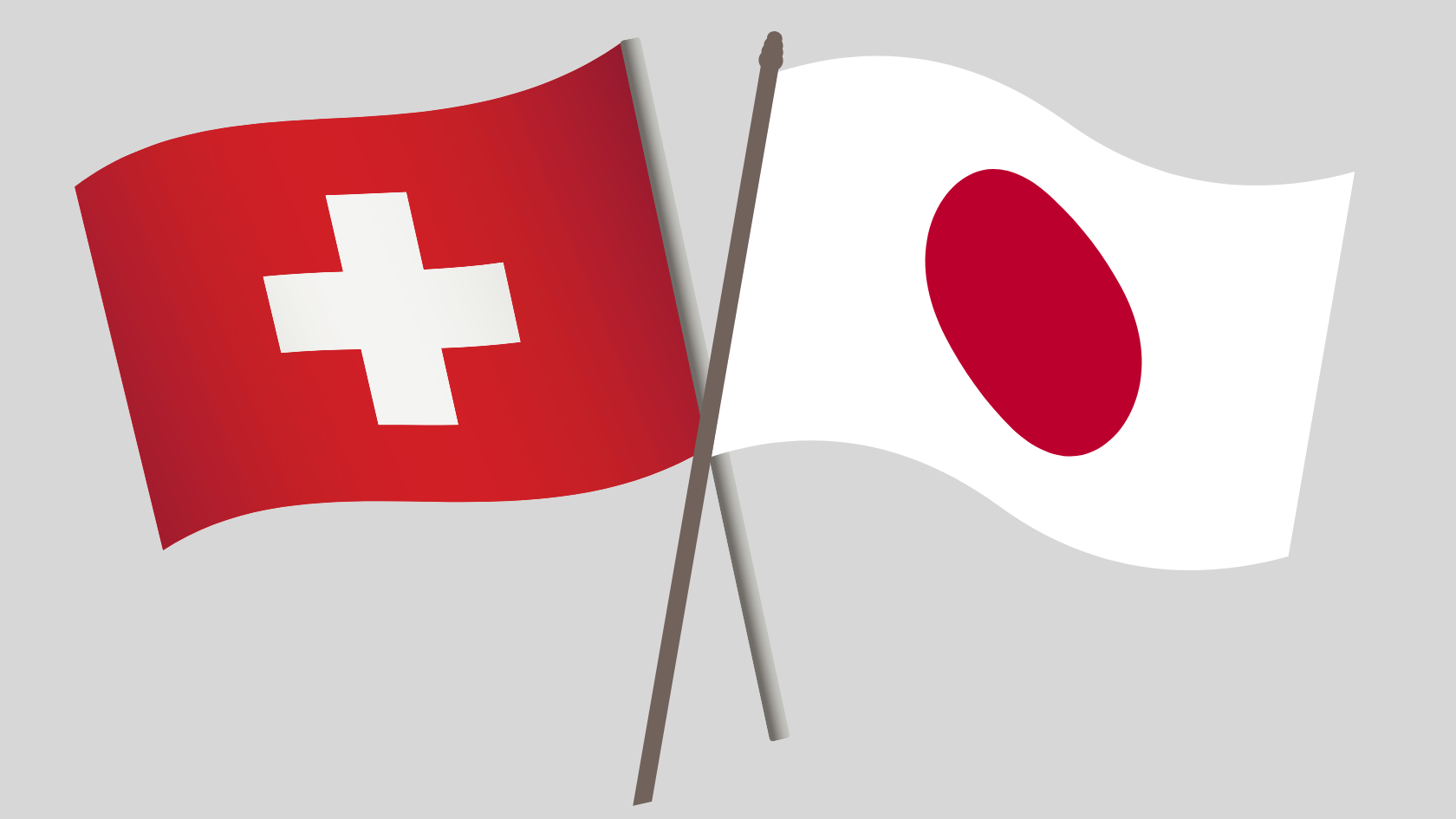Zurich-Tokyo Science Evening – The Future of Law in the Age of AI and Digital Platforms
Can AI be safely used in medicine? How do we ensure intellectual property rights when using AI? UZH researchers discussed pressing questions with Japanese academic leaders, scientists, and policymakers at the Swiss embassy in Tokyo mid-March.
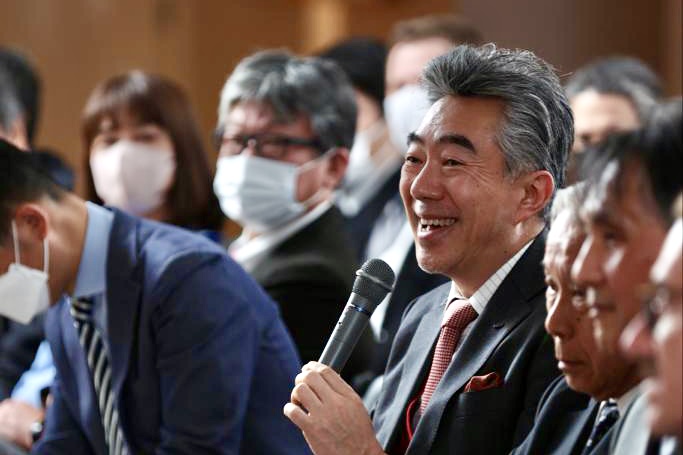
H.E. Dr. Andreas Baum, the Swiss Ambassador to Japan, opened the event by emphasizing the importance of the longstanding cooperation in education, research and innovation between Japan and Switzerland: “Japan is our biggest partner in Asia in terms of research funding by the Swiss National Science Foundation. There are more than 70 agreements between the universities and research centres of the two countries.”
Professor Christian Schwarzenegger, Vice President Faculty Affairs and Scientific Information of UZH, echoed the Ambassador’s sentiments, highlighting the similarities between the two countries: “Both countries are global innovation leaders, where freedom of academia and the importance of research and education is publicly acknowledged”, he said.
These shared values and priorities, coupled with the recognition that international research collaborations are key to finding solutions to the pressing issues that both societies face today, have paved the way for fruitful collaborations between the two countries.
Driving scientific progress through diversity
Professor Kentaro Shimizu, a Japanese researcher working in Switzerland for almost two decades, shared his personal perspective on the benefits of collaboration between the two countries: "As a Japanese researcher working in Switzerland, it has come naturally to me to reach out to researchers based in Japan to collaborate on many of my research projects," he said.
Professor Shimizu's work has been widely recognized, both in Switzerland and in Japan. In 2019, he was named one of the 50 most influential Japanese professors abroad by Nikkei Business, a major business and technology publisher in Japan, for his work on plant research. His success highlights the potential for fruitful collaboration between the two countries, and the valuable contributions that researchers like him can make to advancing scientific knowledge and addressing global challenges.
Addressing the Challenges that Arise from Artificial Intelligence in Law
The first panel of the evening, with the two UZH law professors, Peter Picht and Florent Thouvenin, discussed the multitude of challenges to intellectual property law stemming from artificial intelligence (AI) with Christian Schwarzenegger, who moderated the session. Today, AI is capable of producing texts, images, software and even inventions, creating entirely new legal questions.
“Societies need to come up with novel intellectual property concepts for AI systems. Statutory rules ensuring accessibility of AI training data, a software protection regime less tied to traditional copyright laws, and novel types of standard licenses can be important components in this”, said Professor Peter Picht, who chairs the Center for Intellectual Property and Competition Law (CIPCO) at UZH.
Balancing Innovation and Patient Safety – Legal and Medical Considerations in AI
In the thought-provoking second panel discussion of the evening, Professors Kerstin Noëlle Vokinger (law) and Michael Krauthammer (medical informatics) explored the opportunities and risks of AI in the field of medicine, where highly sensitive personal data is processed. The panel highlighted examples of AI-based tools such as "smart" electrocardiogram devices that can estimate the likelihood of a heart attack, and computer-aided detection software that can assess and categorize breast abnormalities. The panel concluded that there is a pressing need for novel regulatory approaches that can strike a balance between fostering innovation in medicine whilst ensuring patients’ safety.
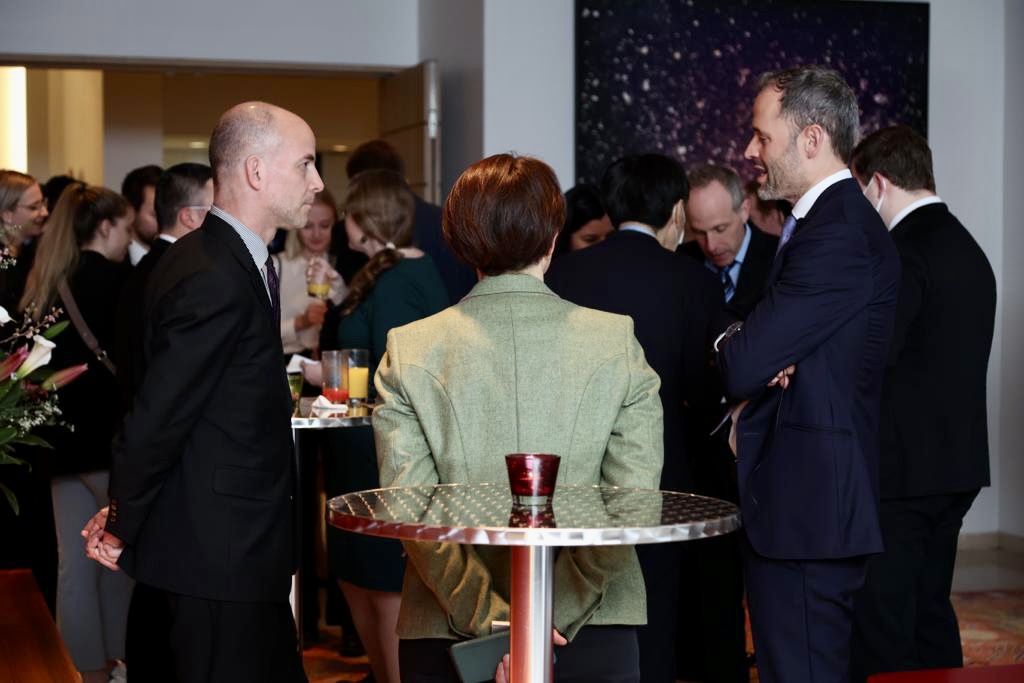
Looking ahead
The event came to a close with an engaging Q&A session, during which Japanese academic leaders, scientists, and policymakers had the opportunity to ask questions to the UZH experts. Following the discussion, the networking dinner provided an informal space to further exchange ideas and build connections. The event underscored the significance of Japan as a crucial non-European partner for UZH and emphasized the importance of ongoing collaboration and dialogue between the two communities.
The Zurich-Tokyo Science Evening took place following the two-day joint strategic symposium of Kyoto University and the University of Zurich.
Raphael Kunz
